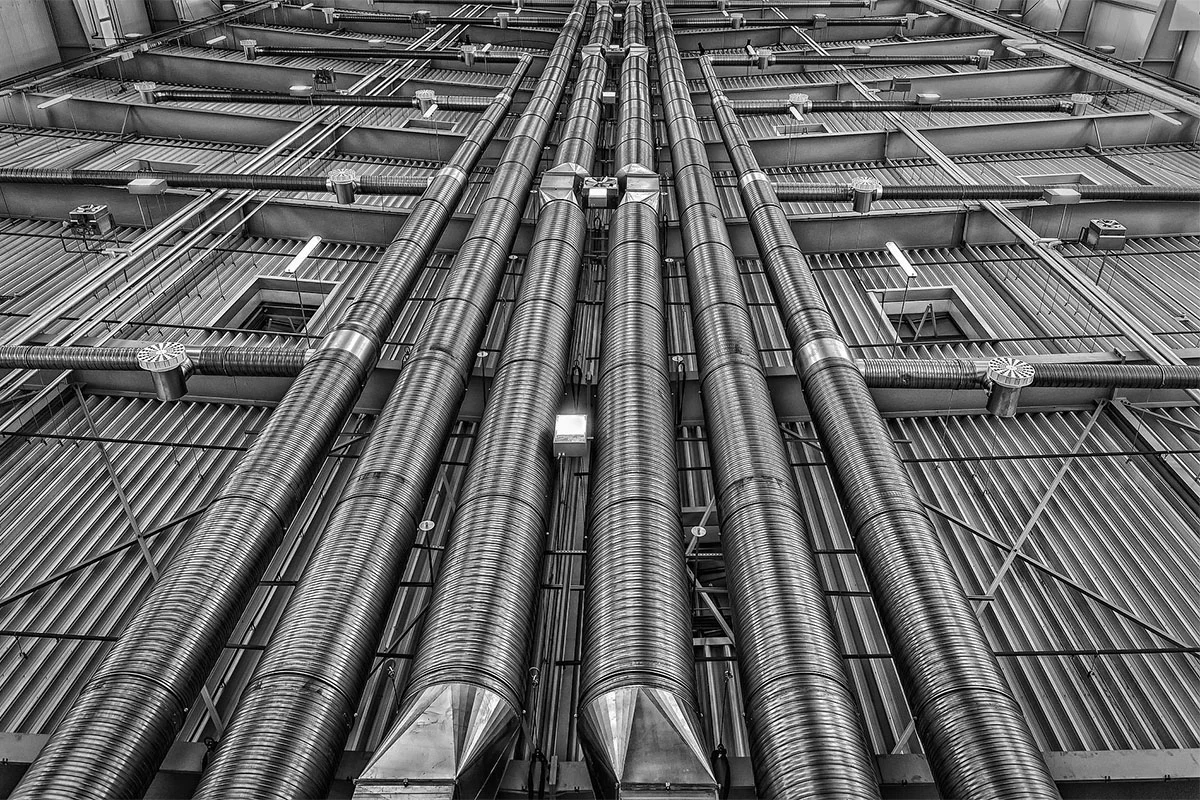Ventilation refers to the process of introducing air into a space while simultaneously removing stale air. In settings such as commercial and industrial facilities ventilation is crucial for maintaining indoor air quality by diluting and displacing pollutants present indoors. Additionally ventilation helps regulate temperature, moisture levels and the movement of air.
If your workplace releases fumes, gases or other pollutants it’s your responsibility to ensure the safety of your employees. These substances not create an uncomfortable work environment but also pose long term risks to your employees health. Adequate ventilation in industrial settings is vital, for safeguarding your employees well being.
The global market for systems is projected to grow from $27.62 billion in 2022 to $46.47 billion by 2029 with a CAGR of 7.7 percent. Industrial facilities often have air particles, harmful chemical fumes, dust and other noxious vapors. Effective ventilation is essential to mitigate the impact of these airborne hazards. It removes air and replaces it with fresh outdoor air.
Types of industrial ventilation
Ensuring airflow within a factory setting is essential to safeguard the well being of both workers and machinery as well as materials. There are three primary categories of ventilation systems that play a role in enhancing and sustaining air quality in industrial facilities. They are as follows:
Natural ventilation
Natural ventilation is pretty much what it sounds like. It happens in workspaces via ceiling vents, windows, doors and even through the floor. This concept encompasses anything that lets fresh air flow in. These systems can effectively get rid of air from machinery and bring in air into the environment. Its one of the most efficient ways to cool a building passively. Natural ventilation works by using wind and temperature differences to draw outdoor air indoors through the buildings openings. In fact many historical landmarks relied on ventilation, back in the day.
Dilution general ventilation
A Diluter System is a standalone filtration system that helps decrease and manage the concentration of fumes in a workshop or factory setting. Its aim is to improve air quality by diluting the existing fumes present in the environment. This type of ventilation can prove useful in industries like welding shops, garages and other locations where there is a significant presence of airborne fumes.
There are various methods for implementing ventilation such as opening doors and windows to let in air or utilizing large fans. The main purpose of these systems is to redirect air away from workers ensuring they do not inhale contaminated air while performing their duties.
The advantages of ventilation include ease of installation, minimal maintenance requirements and effectiveness in managing sources of pollutants. Large commercial fans serve as an example of dilution ventilation in action.
Exhaust ventilation
The ventilation system stands out as the most efficient way to stop contaminants from building up in the air. Many workplaces need exhaust ventilation to keep employees from inhaling harmful substances. Local Exhaust Ventilation (LEV) works by capturing fumes, dust, gases, mists and vapors right at their source. This means they won’t escape into the office environment. Unlike ventilation that relies on fans to disperse air LEV acts like a vacuum cleaner, resulting in lower levels of pollutants. It’s particularly suited for handling chemicals as well as significant amounts of dust or fumes. LEV is usually effective and energy efficient. When setting up a Local Exhaust Ventilation system it’s crucial to choose a company that can avoid common mistakes such as selecting the vent size for current and future needs placing the hood too far from the process to effectively remove fumes and neglecting workforce education or training to ensure everyone understands the importance of ventilation. Here are some compelling reasons to prioritize ventilation in factories.
In the course of their routine activities industrial manufacturing plants produce a significant amount of heated air. Whether it’s from a metal forge, a paper press, a glass kiln or a compressor room there’s an abundance of warm air being released. The secret to maintaining a factory environment that is both pleasant and efficient lies in proper ventilation. Here are some of the main reasons why ventilation is essential, in industrial settings.
They are cost-efficient
Using ventilation in industrial settings is much more cost efficient compared to relying on exhaust fans or air conditioning systems. When businesses implement ventilation they often experience a range of lasting and economical advantages. Once installed ventilators operate without consuming electricity and eliminate the need for costly upkeep or repairs. Additionally they reduce the amount of time employees would typically spend on maintenance tasks.
Makes environment better
In addition to temperature regulation, utilizing solutions for industrial ventilation offers several other benefits. For instance natural ventilators bring in outdoor air enhancing the well being of workers. Moreover they operate silently creating a more peaceful work environment. These perks contribute to increased morale and even productivity levels.
Keeps temperature lower
Ventilation systems like natural ventilators and wall louvers enhance the airflow in a building. By employing natural ventilation concepts a roof vent expels stale air while a wall vent introduces fresh air. This boost in air circulation leads to a facility that is cooler and more pleasant. With an industrial ventilation setup temperatures can drop by 30°F or even more.
Provides safety of ventilation
Excessive heat can lead to a range of problems. These issues include dehydration and damage to machinery. Cooler temperatures offer protection for workers in various aspects. Additionally incorporating solutions reduces the need for workers to frequently access the roof minimizing the risk of accidents. Prioritizing safety is crucial when evaluating any industrial ventilation option.
Control temperatures
Installing industrial ventilators offers a key benefit, allowing you to manage the airflow throughout your facility. With a smart system you can take charge of air control through a basic switch or sophisticated automated building controls. This ensures a consistent and pleasant working atmosphere that adapts to variations in production levels, internal temperatures and external influences.
Conclusion
To sum up this post highlights the significance of ventilation systems in industries and why they should be installed. Unlike HVAC systems, industrial ventilation primarily focuses on removing air without recirculating it. Ventilation systems often get overlooked when it comes to monitoring indoor air quality. The presence of pollutants can jeopardize both the health and comfort of employees. There are several factors to consider regarding ventilation in a factory setting. These include air quality, temperature, humidity, energy efficiency, cost effectiveness and environmental impact. All these aspects play a role in designing industrial fans for modern factories. In industries where there are no vents portable air conditioning units are suitable for areas due to their evaporator coils. Ensure that you have the ventilation system in your workplace or factory.













